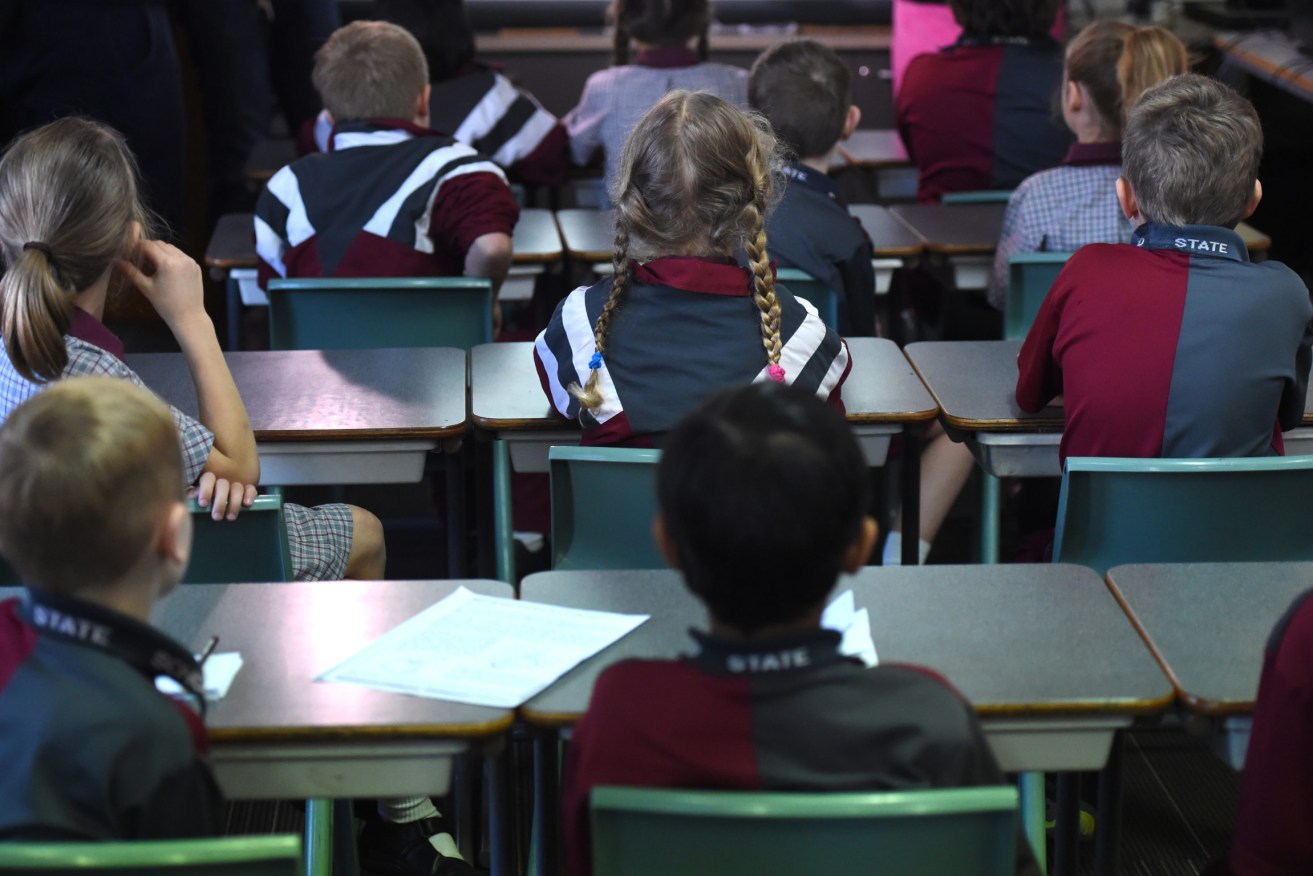“Troubling” NAPLAN participation rate among SA children in care
South Australia is failing young people in care by not ensuring more participate in the NAPLAN, the state’s Guardian for Children says, following the release of data showing only half of Year 9 students under the guardianship last year sat the national test.

Photo: Dan Peled/AAP
Meanwhile, one-quarter of South Australian students in care in Years 3, 5 and 7 were absent, withdrawn or exempt from last year’s NAPLAN, with participation rates for children under the guardianship “concerningly low” in every testing category compared to the broader school cohort.
The findings come from a report tabled in parliament yesterday from South Australia’s Guardian for Children and Young People Penny Wright, using data collected last year by the Education Department.
The National Assessment Program – Literacy and Numeracy is a series of tests conducted each year with Years 3, 5, 7 and 9 students to assess their reading, writing, language and numeracy competency.
According to Wright’s annual report, children in care who are in government schools “consistently” achieve poorer outcomes in relation to performing at or above the national minimum standard, with “significant and sustained” intervention required to lift their academic results.
The greatest disparity was recorded for Year 9 writing, with only 54 per cent of children in care in that grade reaching the national minimum standard, compared to 82 per cent for the broader school cohort.
Year 3 students in care struggled the most with numeracy with only 82 per cent hitting minimum standard compared to 94 per cent for the broader cohort, while Years 5 and 7 children in care found writing the most challenging.
Wright told InDaily in the seven years her office had analysed education data for children in care, she was “really sorry to say that we haven’t seen any significant improvements in the results over that time”.
“I’m continually asking myself, would this be good enough for my kids?” she said.
“Does the community consider this good enough for these children?
“That’s the benchmark we need to set and I think it’s clearly not.”
Wright said there needed to be more dedicated and skilled support given to children in care in schools, particularly those with a disability or complex social, emotional or behavioural needs, to improve their academic outcomes.
“That could be more trained student support officer support focussing on individual children in care and better training for teachers and staff about children who have complex needs that are related to trauma,” she said.
But the former Greens senator said one of the most “alarming” findings from her report was the fact her office was unable to properly track how children in care performed in schools due to the low NAPLAN participation rate.
She said there was a “curious” and “very high” withdrawal rate for children in care across all year levels.
“Withdrawal is a category that’s supposedly to allow a parent or caregiver to choose to withdraw their child on the basis of religious beliefs or philosophical objections to testing,” she said.
“The question has to be why are there so many children in care where the carer is making that choice on their behalf?
“I think we’re failing them by not knowing how they’re tracking at school and us not knowing what we need to do to support them to have better results.
“This is a really troubling situation.”
Wright said there were potentially benevolent reasons why children in care were being withdrawn from testing, including avoiding stress, or tiredness due to trauma-related vulnerabilities.
Department for Education system performance executive director Ben Temperly confirmed students could be withdrawn from NAPLAN testing if their parents or carers have religious beliefs or philosophical objections.
“This is a matter for consideration by individual parents/carers in consultation with their child’s school,” he said.
“The decision to withdraw a child in care from testing is made by their carer in consultation with the school, and can be made for a variety of reasons depending on the child’s circumstances.”
Wright said she was also “really concerned” about the lack of comparable education data for children in care who attend Catholic or independent private schools.
According to her report, about 41 per cent of children in care in 2019 were enrolled in the non-government school system, were below school age or were non-identifiable.
“We know nothing about their experience or their educational attainment,” she said.
“Government funds are going to those schools and these are children and young people for whom the state and more broadly the community is responsible, so there should be more transparency.”
Catholic Education South Australia is in talks with the Department for Child Protection about providing education data for future reports.
Wright’s report also found children in care were last year four times more likely to be suspended and eight times more likely to be excluded than the general school cohort.
The proportion of children and young people in care with an intellectual disability is over eight and a half times, and those with complex social, emotional and behavioural needs are nine times higher than the overall government school student population.
Temperly said the Department had set a 10-year vision to build a “world-class education system” in South Australia.
“To achieve this, we must challenge and support every student to achieve their highest potential whatever their circumstances,” he said.
Want to comment?
Send us an email, making it clear which story you’re commenting on and including your full name (required for publication) and phone number (only for verification purposes). Please put “Reader views” in the subject.
We’ll publish the best comments in a regular “Reader Views” post. Your comments can be brief, or we can accept up to 350 words, or thereabouts.




